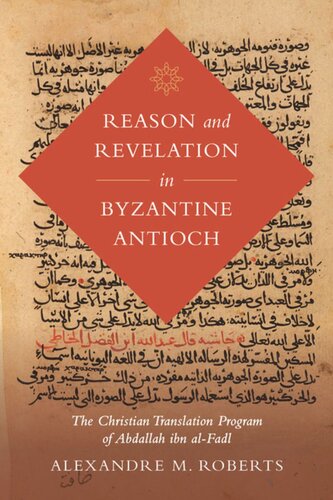

Most ebook files are in PDF format, so you can easily read them using various software such as Foxit Reader or directly on the Google Chrome browser.
Some ebook files are released by publishers in other formats such as .awz, .mobi, .epub, .fb2, etc. You may need to install specific software to read these formats on mobile/PC, such as Calibre.
Please read the tutorial at this link: https://ebookbell.com/faq
We offer FREE conversion to the popular formats you request; however, this may take some time. Therefore, right after payment, please email us, and we will try to provide the service as quickly as possible.
For some exceptional file formats or broken links (if any), please refrain from opening any disputes. Instead, email us first, and we will try to assist within a maximum of 6 hours.
EbookBell Team

4.0
36 reviewsWhat happened to ancient Greek thought after Antiquity? What impact did Abrahamic religions have on medieval Byzantine and Islamic scholars who adapted and reinvigorated this ancient philosophical heritage? Reason and Revelation in Byzantine Antioch tackles these questions by examining the work of the eleventh-century Christian theologian Abdallah ibn al-Fadl, who undertook an ambitious program of translating Greek texts, ancient and contemporary, into Arabic. Poised between the Byzantine Empire that controlled his home city of Antioch and the Arabic-speaking cultural universe of Syria-Palestine, Egypt, Aleppo, and Iraq, Ibn al-Fadl engaged intensely with both Greek and Arabic philosophy, science, and literary culture. Challenging the common narrative that treats Christian and Muslim scholars in almost total isolation from each other in the Middle Ages, Alexandre M. Roberts reveals a shared culture of robust intellectual curiosity in the service of tradition that has had a lasting role in Eurasian intellectual history.